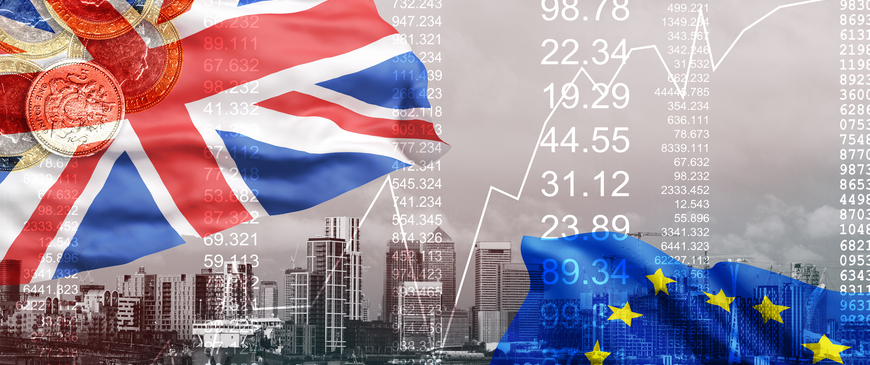
Britain needs to face up to the cost of Brexit
The UK debate about Brexit’s impact on the economy has ranged from non-existent to unserious. Labour is avoiding the subject, to try to regain lost voters in pro-Brexit constituencies, and the government immediately changes the subject to vaccines or free trade deals. The right-wing media – much of which has given up any pretence at impartiality on Brexit – barely covers it. The BBC took the decision to treat the economics of Brexit as a ‘sides differ’ issue before the referendum, and have largely continued to do so. But my new estimates of the cost of Brexit show that the UK economy is in serious trouble, and it may be difficult for Westminster to avoid the subject for much longer.
Disentangling the economic effects of Brexit and Covid-19 is difficult. But now that most advanced economies have surpassed their pre-pandemic level of output, we have a basis of comparison for the UK economy.
As with my earlier modelling exercises, I construct ‘doppelgängers’ – each of them a basket of countries whose economic performance closely matches the UK’s before the Brexit referendum and the end of the transition period. They provide a counterfactual UK that did not leave the EU. I estimate doppelgängers for GDP, investment (gross fixed capital formation), total services trade (exports plus imports) and total goods trade (ditto).
The results are sobering. In the final quarter of 2021, UK GDP is 5.2 per cent smaller than the modelled, doppelgänger UK; investment is 13.7 per cent lower; and goods trade, 13.6 per cent lower. The UK’s poor economic performance in the pandemic may be partly to blame for the weakness of GDP, but its early vaccination campaign meant its restrictions ended earlier than those of many peer economies. And over the period from the referendum to the pandemic, a sizeable shortfall – 2.9 per cent – had appeared between the UK and the doppelgänger. Investment also began to lag at the point of the referendum, and goods trade when the UK left the single market.
The estimate for services trade is that the UK’s level is 7.9 per cent higher than that of the doppelgänger, but the estimate is not robust: for now, we cannot know what the impact of Brexit on services trade has been.
The impact of Brexit on inflation is small in comparison to global price hikes in manufactured goods, energy and other commodities. The end of free movement has reduced labour supply, but the number of British workers becoming inactive over the pandemic has had a much larger effect. Import price inflation has been similar in the eurozone and the UK, despite the large decline in Britain’s goods imports from the EU after it left the single market and customs union.
This is the backdrop – and one that is largely unmentioned in the UK political debate – for the big tax rises that the finance minister, Rishi Sunak, announced over the last year. A smaller economy means higher taxes are needed to fund public services and welfare. The Office for Budget Responsibility forecasts that the scarring effects of Brexit will be larger than those of Covid. Our own estimates are in accord with that view.
Since the referendum in 2016, Britain has lurched from crisis to crisis, with prime ministers being toppled, no-deal brinksmanship, a pandemic and now the Ukraine war and cost of living crisis. Brexit’s economic drag isn’t as spectacular, but it is doing a lot of damage to the well-being and prosperity of Britons. Neither main party has convincing suggestions about how to deal with it, because they won’t acknowledge the problem. Until they do, Britain will continue to stagnate.
The Centre for European Reform report, ‘What can we know about the cost of Brexit so far?’, is available here.
Johnn Springford is deputy director of the Centre for European Reform.
